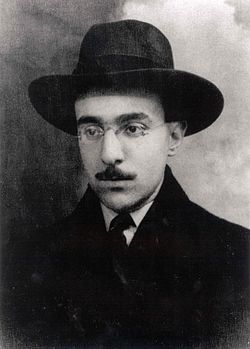Fernando Pessoa Quote
And leaning out the window, enjoying the day above the varying volume of the entire city, only one thought swells my soul – the intimate will to die, to finish, not to see more light over any city, not to think, not to feel, to leave behind like wrapping paper the course of the sun and the days, to rid myself, at the edge of the grand bed, as of a heavy suit, of the involuntary effort to be.
Fernando Pessoa
And leaning out the window, enjoying the day above the varying volume of the entire city, only one thought swells my soul – the intimate will to die, to finish, not to see more light over any city, not to think, not to feel, to leave behind like wrapping paper the course of the sun and the days, to rid myself, at the edge of the grand bed, as of a heavy suit, of the involuntary effort to be.
Related Quotes
Certainly we can say that the pace of modern life, increased and supported by our technology in general and our personal electronics in particular, has resulted in a short attention span and an addict...
Arthur Rosenfeld
Tags:
being, complicated, critical thinking, daoism, emotion, feeling, hectic, life, meditation, modern life
About Fernando Pessoa
Fernando António Nogueira de Seabra Pessoa (; Portuguese: [fɨɾˈnɐ̃du pɨˈsoɐ]; 13 June 1888 – 30 November 1935) was a Portuguese poet, writer, literary critic, translator, and publisher. He has been described as one of the most significant literary figures of the 20th century and one of the greatest poets in the Portuguese language. He also wrote in and translated from English and French.
Pessoa was a prolific writer both in his own name and approximately seventy-five other names, of which three stand out: Alberto Caeiro, Álvaro de Campos, and Ricardo Reis. He did not define these as pseudonyms because he felt that this did not capture their true independent intellectual life and instead called them heteronyms, a term he invented. These imaginary figures sometimes held unpopular or extreme views.
Pessoa was a prolific writer both in his own name and approximately seventy-five other names, of which three stand out: Alberto Caeiro, Álvaro de Campos, and Ricardo Reis. He did not define these as pseudonyms because he felt that this did not capture their true independent intellectual life and instead called them heteronyms, a term he invented. These imaginary figures sometimes held unpopular or extreme views.
